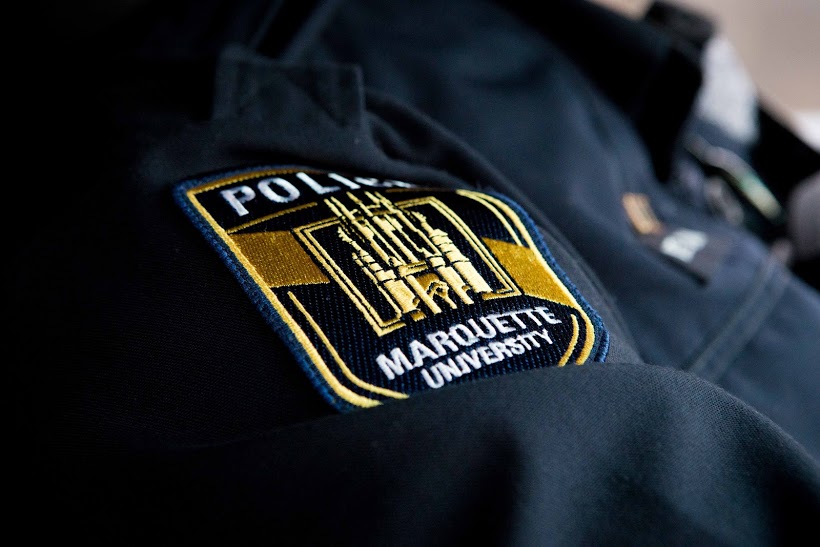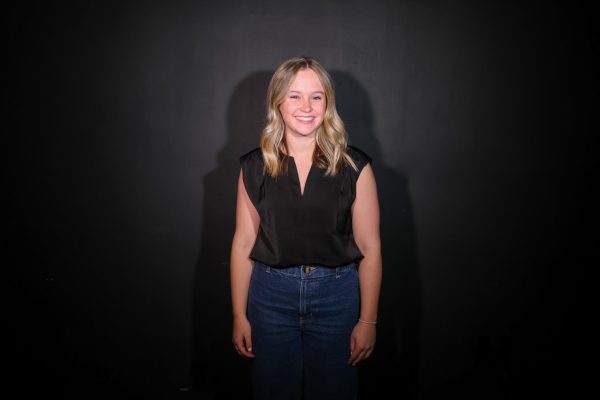Marquette University Police Department’s Behavioral Health Unit has been operational for about two months now. The unit’s members are MUPD officer Carolina Mora and newly hired crisis worker Amanda Laurila.
Mora said that since Marquette is in such a populated area, between students, the greater community and the homeless shelters. The department decided it would be beneficial to have a unit specifically dedicated the helping people and students in need of mental health services or people who need help getting connected to resources.
“We want to present ourselves in a non-threatening manner just to show that we’re here to help to provide our resources,” Mora said.
Laurila said she worked for the Milwaukee Police Department before becoming the Community Crisis Liaison in Whitewater then later in Walworth County Lake Geneva. She said in both of these places, her work was very successful. MUPD Assistant Chief Jeff Kranz said Laurila is learning how to implement her expertise from her past work in the Marquette area.
Laurila and Mora get referrals from other officers, they listen to the radio for calls or other departments can give them referrals to individuals in the community who might be displaying signs of a mental health issue. They also drive around and watch the area to keep an eye out for familiar individuals.
“The officers will come across a challenging situation and they’ll usually call the Behavioral Health Unit (BHU) or the BHU is already responding because they can hear by the nature of the call that it’s something that’s in their area of responsibilities,” Kranz said.
Laurila said the goal of the unit is focused on connecting individuals with resources to find them housing or mental health assistance. She said a lot of these individuals who may be perceived as homeless, need to be reconnected with resources and organizations they’re already familiar with. Laurila said once they can provide individuals with that help, they aren’t being reported to MUPD anymore.
“We’re seeing that some of the calls we respond to for a person who appears to be homeless, may not necessarily be homeless. They might have a place to stay, a rooming house, or they might be in a program. Often times the caseworkers were unaware, or they were looking for that person,” Mora said.
Laurila said the team follows up with these individuals and keeps them on their radar. The same thing goes for students, Laurila said if the BHU had contact with a student struggling with mental health, drugs or alcohol, they stay in contact with them and the counseling center to make sure they get the help they need.
“I think it’s really nice to have this outsider for the student community to do check-ins. When people think of cops it can be negative, so when I come out and assess it takes that whole stereotype out of it. I just want to come in and support, engage and connect with the community,” Laurila said.
Kranz said the team recently was able to make contact with an individual who had police contacts due to trespassing, retail theft and loitering. Mora said originally this individual didn’t want their help, but they were persistent, and the individual decided to accept the help. The team was then able to find him a place to stay.
Mora said the individual told them, “thank you for allowing me to sleep like a decent human being,” Mora said during their check-ins, the individual always wants to give them a hug.
“Having Amanda go in her civilian attire, and me wearing a different kind of uniform, I feel like it puts the community and students at ease. Sometimes people get embarrassed if you have a cop knocking on your door. We’re able to just walk around and nobody pays attention to us,” Mora said.
Mora said it doesn’t stop with just housing, they also want to always be there for these people. She said they want to build a relationship with those individuals and be a familiar face.
“The majority of the people are already connected to a lot, it’s reconnecting and trying to figure it out. A lot of them don’t remember, they don’t know or they aren’t taking their meds,” Laurila said.
Mora said the team is working on meeting with or has already met with mental health centers, Milwaukee Fire Department, the Milwaukee Rescue Mission, Joy House, The Crisis Resource Center, hospitals, other police departments, youth programs and other resources they could utilize to help people.
“What they needed to do was become the face of MUPD with some of these resources to build that trust and that bridge between our department and them to help facilitate the work they’re doing now,” Kranz said.
Laurila said they’ve recently teamed up with Milwaukee County employees like homeless outreach to go around the city early in the mornings to help people who might be sleeping on the streets or under bridges.
“Once you can get over the hurdles of a system you can’t control, and make those connections with people and resources, it’s very successful,” Laurila said.
The unit is fully operational after a slight delay earlier this year.
Kranz said he hopes to create a second unit that can work nights. He said he’s very happy with how the program is going and he’s looking forward to expanding it.
Mora said right now they want to add their contacts to the MUPD website in case people want to get in contact with them directly. She also said the team is planning on training the whole department on what they do and talking to different classes at Marquette about their mission.
This story was written by Sophia Tiedge. She can be reached at sophia.tiedge@marquette.edu




